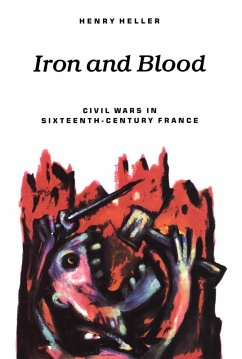Heller refutes Roland Mousnier''s thesis that early modern France was a society of orders in which most people knew and accepted their status in society. This concept of order certainly had meaning for the sixteenth-century élite because of aristocratic domination over land and people, but it is not clear that this was also the view of the commoners. Heller maintains that for peasants, craftsmen, and merchants the decline of the French economy started at the beginning rather than the middle of the sixteenth century. This resulted in unrest which spread from town to countryside, culminating in the three great popular movements of the civil wars: the Calvinist Revolt of the 1560s, the Catholic League''s challenge to the power of the Monarchy, and the revolts of the 1590s. Heller stresses that the history of sixteenth-century France is one of both resistance and domination. It was often the upper class which took the initiative, directing much of the violence toward the commoners, and many of those involved in the civil wars were fighting for their own economic positions. Iron and Blood helps to clarify the significance of the French Civil Wars by showing them to be rooted in an aristocratic reaction against the earlier social unrest which began among the common people.
Dieser Download kann aus rechtlichen Gründen nur mit Rechnungsadresse in A, B, BG, CY, CZ, D, DK, EW, E, FIN, F, GR, HR, H, IRL, I, LT, L, LR, M, NL, PL, P, R, S, SLO, SK ausgeliefert werden.









